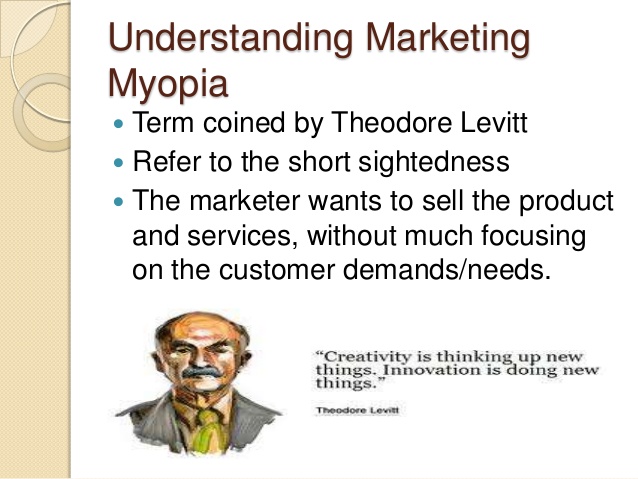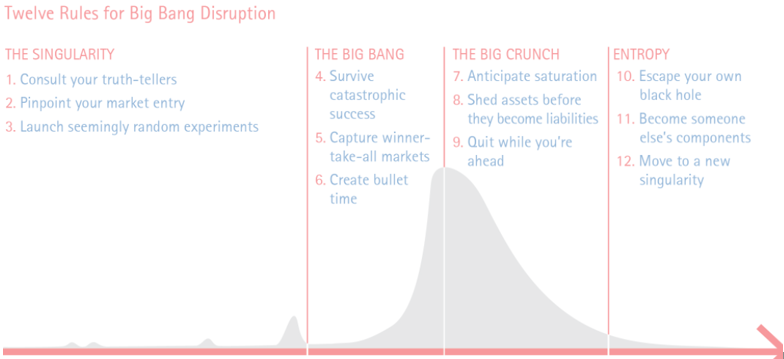
Marketing Myopia: Levitt’s 1960 HBR article
The point of Levitt’s article was that businesses should focus on customer needs rather than business ideas. The illusion that a firm is in a growth industry is a common one. There are no growth industries! Presumptive growth is not guaranteed. They instead need focus on the vision of customer needs. You are not in the business of a particular industry, you’re in the business of customer value creation.
People cannot accurately predict the future and therefore there is no such thing as a growth industry. Management needs to see the broader market; you need to be single minded about what the customer wants.
Self-Deceiving of Management:
- Growth through market segment expansion
- Too much faith in manufacturing
- Preoccupation of careful scientific experiments;
- Too narrow understanding of the customer / narrow industry view.
Examples, Petroleum = Energy not oil!
Corner Store = Food distribution not retail groceries!
Buggy = Transportation not horse and carriage!
Retirement Homes = Childhood for Seniors
If the management understood that they were in the transportation industry not in the horse and carriage industry; they might well have avoid the decline of GM in the 2000s.
Big Bang Disruptions:
 The idea with Big Bang Disruption is it is an article that buildings on Christensen’s Crossing the Chasm.
The idea with Big Bang Disruption is it is an article that buildings on Christensen’s Crossing the Chasm.
Key takeaways:
- Make your exit at the right time;
- Jump before your garbage falls on you;
- Wrong attitude or right attitude (is this Big Bang Disruption really for MBAs and academics?)
- They aren’t trying to disrupt you, you’re banker job is just part of the debris.
Unencumbered development: hackathon culture.
Unconstrainted growth: there are the 5 segments by Everett Rogers Crossing the Chasm, now there are trial users.
Undisciplined strategy: start life with a better performance at a lower price. Venmo; faster cheaper. Not trying to disrupt your business, you’re business is collateral damage. Be ready for the fast escape.
- Consult your truth tellers: candor Jack Welch.
- Pinpoint your market entry:
- Launch seemingly random experiments: confuse people
- Survive catastrophic success
- Capture winner-take-all markets
- Create bullet time
- Anticipate saturation
- Shed assets before they become liabilities
- Quit while you’re ahead
- Escape your own black hole
- Become someone else’s components
- Move to a new singularity.
- Strategic Discipline: Compete on all three disciplines at once.
- New-Product Marketing: Market to all segments of users immediately. Be ready to scale up and exist swiftly.
- Innovation Method: rapid-fire, low-cost experimentation on popular platforms (Reddit, Facebook, Twitter)d onto the technology needed to deliver the Model-T.

